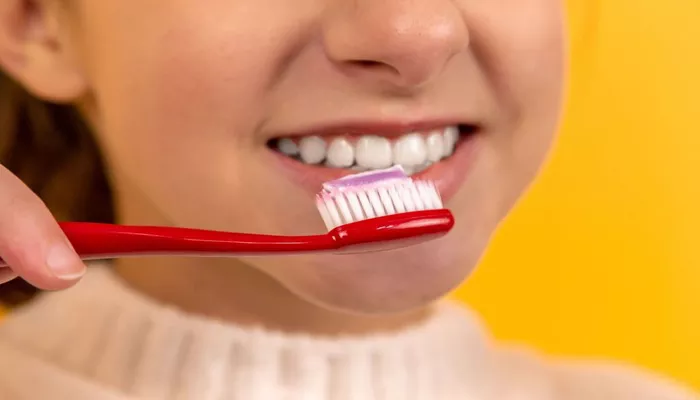Periodontal disease, a chronic inflammatory condition affecting the gums and surrounding tissues, is not just a localized oral health issue. Research has shown that it can have systemic effects, impacting various parts of the body, including the digestive system. This article aims to explain how periodontal disease can lead to digestive problems from a professional dental perspective, providing a detailed introduction, subtitles, and a popular science style explanation.
Introduction to Periodontal Disease
Periodontal disease is caused by the accumulation of plaque, a sticky film of bacteria that forms on teeth and gums. If plaque is not removed through regular brushing and flossing, it can harden into tartar, which is more difficult to remove.
Over time, the bacteria in plaque and tartar can irritate and inflame the gums, leading to gingivitis, the first stage of periodontal disease. If left untreated, gingivitis can progress to periodontitis, a more severe form of the disease that affects the bones and tissues that support teeth.
The Link Between Periodontal Disease and Digestive Problems
The oral cavity serves as the gateway to the digestive tract, and it shares a microbiome with the intestines. This overlap in microbial communities makes the relationship between periodontal disease and digestive problems particularly close.
Here’s how periodontal disease can lead to digestive issues:
1. Bacterial Infiltration
The bacteria present in periodontal disease can enter the bloodstream through the inflamed gums. Once in the bloodstream, these bacteria can travel to various parts of the body, including the digestive system. They can settle in the intestines, causing an imbalance in the gut microbiome, which can lead to digestive problems such as irritable bowel syndrome (IBS), inflammatory bowel disease (IBD), and other gastrointestinal disorders.
2. Systemic Inflammation
Periodontal disease is characterized by chronic inflammation of the gums and surrounding tissues. This inflammation can extend beyond the oral cavity, affecting the entire body, including the digestive system. Systemic inflammation can disrupt the normal functioning of the digestive tract, leading to symptoms such as bloating, diarrhea, constipation, and abdominal pain.
3. Nutrient Absorption
The inflammation and infection caused by periodontal disease can compromise the ability of the body to absorb nutrients from food. Poor nutrient absorption can lead to malnutrition and deficiencies in essential vitamins and minerals, which are crucial for the healthy functioning of the digestive system. This can exacerbate digestive problems and make it difficult for the body to heal and repair damage caused by periodontal disease.
4. Hormonal Imbalances
Periodontal disease has been linked to hormonal imbalances, particularly in women. The bacteria present in periodontal disease can affect the production and regulation of hormones such as cortisol and insulin. Hormonal imbalances can disrupt the normal functioning of the digestive system, leading to symptoms such as acid reflux, heartburn, and indigestion.
5. Stress and Anxiety
The pain, discomfort, and embarrassment associated with periodontal disease can cause stress and anxiety. Stress and anxiety are known to have a significant impact on the digestive system, leading to symptoms such as nausea, vomiting, and loss of appetite. In severe cases, stress and anxiety can cause functional digestive disorders such as gastroesophageal reflux disease (GERD) and functional dyspepsia.
How to Prevent and Manage Periodontal Disease to Protect Digestive Health
Given the close relationship between periodontal disease and digestive problems, it is essential to take steps to prevent and manage periodontal disease to protect digestive health. Here are some tips for maintaining good oral hygiene and preventing periodontal disease:
1. Brush and Floss Regularly
Brushing and flossing regularly are the cornerstone of good oral hygiene. Brush your teeth at least twice a day with a fluoride toothpaste, and floss daily to remove plaque and food particles stuck between teeth.
2. Use an Antiseptic Mouthwash
Antiseptic mouthwashes can help reduce the number of bacteria in the mouth, reducing the risk of periodontal disease.
Look for mouthwashes that contain ingredients such as chlorhexidine or cetylpyridinium chloride, which have been shown to be effective in reducing plaque and gingivitis.
3. Schedule Regular Dental Check-ups
Regular dental check-ups are crucial for detecting and treating periodontal disease early. During a dental check-up, your dentist will examine your teeth and gums for signs of inflammation, plaque, and tartar buildup. They may also take x-rays to check for bone loss and other signs of periodontitis.
4. Eat a Healthy Diet
A balanced and nutritious diet is essential for maintaining good oral health. Eat plenty of fruits, vegetables, whole grains, and lean proteins, and limit your intake of sugary snacks and drinks. A healthy diet can help strengthen your teeth and gums, reducing the risk of periodontal disease.
5. Quit Smoking and Limit Alcohol Consumption
Smoking and excessive alcohol consumption are significant risk factors for periodontal disease. Quitting smoking and limiting alcohol intake can reduce your risk of developing periodontal disease and improve your overall oral health.
Conclusion
In conclusion, periodontal disease is not just a localized oral health issue. It can have systemic effects, impacting various parts of the body, including the digestive system. By understanding the link between periodontal disease and digestive problems and taking steps to prevent and manage periodontal disease, you can protect your digestive health and maintain overall well-being. Remember, good oral hygiene is the foundation of good health, and it’s never too late to start taking care of your teeth and gums.
Related topics:

